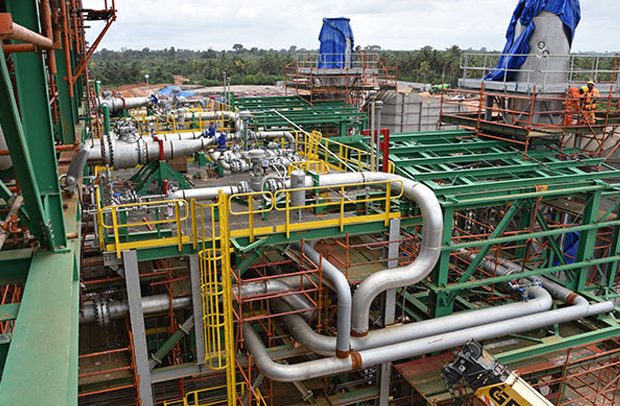The Energy Ministry says even though the previous Mahama administration signed a contract with ENI to flow 180 mmscfd of gas in 2015, it did not plan the utilization of the gas.
The Ministry said the previous administration did not plan for a gas transportation infrastructure to flow the gas to the market.
Reacting to media reportage on the take-or-pay clause in the deal referred to as the Offshore Cape Three Point (OCTP) agreement between Ghana and the OCTP partners of whom Eni Ghana is the lead operator, the Ministry, in a release issued and signed by Nana Damoah, Head of Communications & Public Affairs, said the NDC administration committed Ghana to a take or pay obligation, which would be 90% of total gas produced.
“The NPP administration, after assuming office, realized that such plans did not exist and Ghana would be required to pay monthly for the gas produced whether we used it or not. Since there was no plan for utilization of the gas, it meant that Ghana was going to lose millions of dollars monthly.”
“In order to fully utilise the gas and manage the take-or-pay obligation, the NPP government initiated certain critical measures, propelled primarily by the fact that ENI gas was non-associated gas.
“Though it is an integrated oil and gas project, the sponsors will only make their money from the gas sales. The production of gas can therefore be deferred, leaving the gas in the ground for future utilization. But if the total gas production is deferred, we will have to pay the Sankofa Partners their share of the gas deferred. Therefore, we decided to defer the production of the GNPC share of the gas. This has reduced the take or pay gas to 140 mmscfd.
“The government achieved a significant reduction in the gas price from $10.15/MMBtu (in 2018 US Dollars) to $7.89/MMBtu. Thus, compared to the price negotiated by the NDC government, the NPP government is saving the nation circa $95 million annually in gas payments to the Partners. Over the life of the project, this will amount to over $700 million in present value terms, or $1.5 billion in money of the day.
“The take or pay gas will cost us $40 million per month if we fail to take the entire 140 mmscfd. However, we have been taking 60mmscfd in Takoradi for power generation, which has reduced the amount of gas un-utilized to 80mmscfd. Thus, about $28 million is being paid for gas currently not utilized. It must be emphasised though that the un-utilized gas is not lost to the State.
“Once capacity to offtake the gas becomes available, the Sankofa Partners will supply the un-utilized gas, which has already been paid for.”
The Ministry revealed that government was committed to increasing the gas utilisation by accelerating the infrastructure projects for the evacuation of additional 60mmscfd through a bypass to the West African Gas Pipeline (WAGP).
“This will allow for gas to be used in Tema through the reverse flow mechanism. The bypass project has been completed, and is to be connected this month when GNPC and WAPCO conclude and sign a Gas Transportation Agreement. This will further reduce the un-utilized gas to 20 mmscfd.
“Also, the government is accelerating the relocation of the Karpowership to the Sekondi Naval Base this year, and to convert it to use gas, which would take up to 90mmscfd. This will then eliminate the take or pay deficiency, and allow for the full 180 mmscfd to be produced, including GNPC’s share.”
Government gave assurance that it was taking steps to ensure payment was made for gas delivered while working to address the infrastructure bottlenecks facing the gas-to-power sector.
By Samuel Boadi


